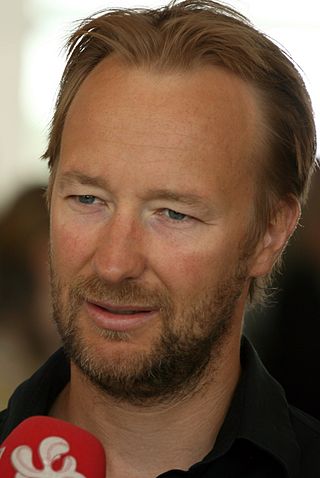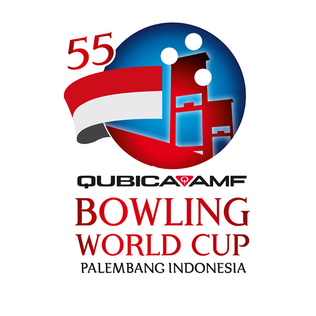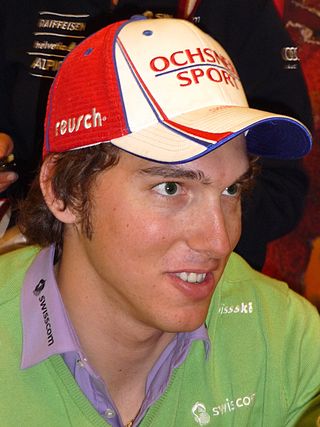| 1993 Men's combined World Cup | |
| Previous: 1992 | Next: 1994 |
Men's combined World Cup 1992/1993
| 1993 Men's combined World Cup | |
| Previous: 1992 | Next: 1994 |
Men's combined World Cup 1992/1993
In men's combined World Cup 1992/93 all three results count. Marc Girardelli won his third Combined World Cup by winning all three competitions.
Note:
In all races not all points were awarded (not enough finishers).
| Alpine Skiing World Cup | |
| Men | |
Overall | Downhill | Super G | Giant slalom | Slalom | Combined | |
| 1993 |

The FIS Alpine Ski World Cup is the top international circuit of alpine skiing competitions, launched in 1966 by a group of ski racing friends and experts which included French journalist Serge Lang and the alpine ski team directors from France and the USA. It was soon backed by International Ski Federation president Marc Hodler during the FIS Alpine World Ski Championships 1966 at Portillo, Chile, and became an official FIS event in the spring of 1967 after the FIS Congress at Beirut, Lebanon.

Anita Wachter is a former World Cup alpine ski racer and Olympic gold medalist from Austria. She focused on the technical events and specialized in giant slalom.

Super giant slalom, or super-G, is a racing discipline of alpine skiing. Along with the faster downhill, it is regarded as a "speed" event, in contrast to the technical events giant slalom and slalom. It debuted as an official World Cup event during the 1983 season and was added to the official schedule of the World Championships in 1987 and the Winter Olympics in 1988.

Kjetil André Aamodt is a former World Cup alpine ski racer from Norway, a champion in the Olympics, World Championships, and World Cup. He is one of the most successful alpine ski racers from Norway.

Alpine skiing has been contested at every Winter Olympics since 1936, when a combined event was held in Garmisch-Partenkirchen, Germany.
The 28th World Cup season began in late October 1993 in Sölden, Austria, and concluded in March 1994 at the World Cup finals at Vail in the United States. The overall champions were Kjetil André Aamodt of Norway and Vreni Schneider of Switzerland.
The 27th World Cup season began in November 1992 in Sestriere, Italy for men and Park City, Utah, USA for women, and concluded in March 1993 at the newly created World Cup Final in Åre, Sweden. A break in the schedule was for the 1993 World Championships, held in Morioka, Japan, from February 4–14.
The 26th World Cup season began in November 1991 in the United States and concluded in March 1992 in Switzerland. The overall winners were Paul Accola of Switzerland, his first, and Petra Kronberger of Austria, her third straight.
The 23rd World Cup season began in November 1988 in Austria and concluded in March 1989 in Japan. The overall champions were Marc Girardelli of Luxembourg and Vreni Schneider of Switzerland. Schneider established the record for victories in a World Cup season, winning a total of 14 races, surpassing the record of 13 established in 1978-79 by the great Swedish skier and three-time overall World Cup champion Ingemar Stenmark.
The 20th World Cup season began in August 1985 in Argentina, resumed in December 1985 in Italy, and concluded in March 1986 in Canada. Because of the South America events, this was the first time that the World Cup season had started prior to December 1. The overall champions were Marc Girardelli of Luxembourg, his second consecutive overall win, and Maria Walliser of Switzerland, her first.
The 19th World Cup season began in December 1984 in Italy and concluded in March 1985 in the United States. The overall champions were Marc Girardelli of Luxembourg and Michela Figini of Switzerland; both were first-time champions.
The 17th season of World Cup competition began in December 1982 in Switzerland and concluded in March 1983 in Japan. For the first time, the overall titles were both won by Americans, Tamara McKinney and Phil Mahre. Mahre won his third consecutive overall World Cup title; McKinney became the first American woman to win the overall title.
The 10th World Cup season began in December 1975 in France and concluded in March 1976 in Canada. Ingemar Stenmark of Sweden won the first of his three consecutive overall titles. Defending women's overall champion Annemarie Moser-Pröll, who had won five straight overall titles, missed the entire season so that she could care for her father, who was terminally ill with lung cancer. In her absence, Rosi Mittermaier of West Germany, a double gold medalist at the 1976 Winter Olympics, won the women's overall title.
The 9th World Cup season began in December 1974 in France and concluded in March 1975 in Italy. Gustav Thöni of Italy would regain the overall title, his fourth overall title in five seasons. Annemarie Moser-Pröll of Austria won the women's overall title, her fifth consecutive.

The QubicaAMF Bowling World Cup, previously known as the International Masters and AMF Bowling World Cup, is an annual Ten-pin bowling championship sponsored by QubicaAMF Worldwide, and the largest in bowling in terms of number of participating nations. Each nation chooses one male and/or one female bowler to represent them in the tournament, and in the majority of cases, this is done by running a qualifying tournament, the winners of which are chosen.
Gustav Weder is a Swiss bobsledder who competed from the late 1980s to the early 1990s. Competing in three Winter Olympics, he won four medals with two gold, one silver, and one bronze.
William Besse is a Swiss former alpine skier. He took four wins and 13 podiums in the FIS Alpine Ski World Cup, all of them in the downhill discipline, including winning the Lauberhorn downhill in Wengen in 1994. He retired from competition in 1999, in part because he struggled to adapt to the introduction of carving skis in the mid-1990s. After retiring from competition, he became a ski instructor in Verbier, and also worked as an analyst for Télévision Suisse Romande and Radio Télévision Suisse's coverage of alpine skiing, until he was let go after the 2014-15 season.

The 44th World Cup season began on 24 October 2009, in Sölden, Austria, and concluded on 14 March 2010, at the World Cup finals in Garmisch, Germany.
The 11th World Cup season began in December 1976 in France and concluded in March 1977 in Spain. Ingemar Stenmark of Sweden won his second of three consecutive men's overall titles. Rosi Mittermaier, the defending women's overall champion, retired after the 1976 season, but Annemarie Moser-Pröll, who had won the previous five overall titles, returned from her 1976 sabbatical. However, Lise-Marie Morerod of Switzerland won the women's overall title.